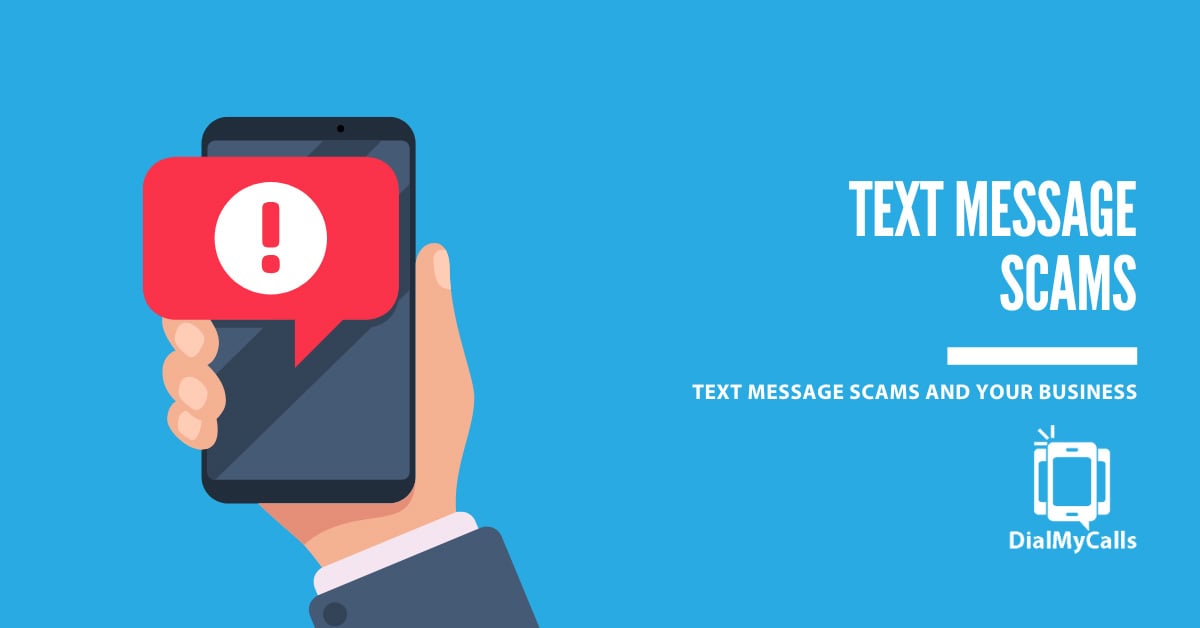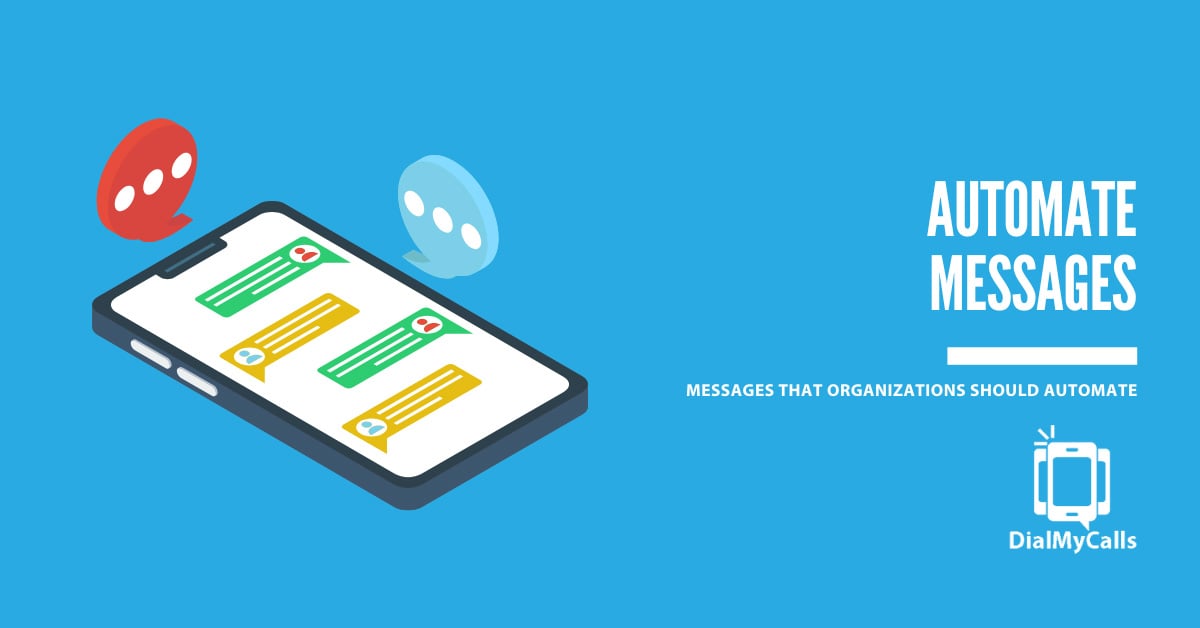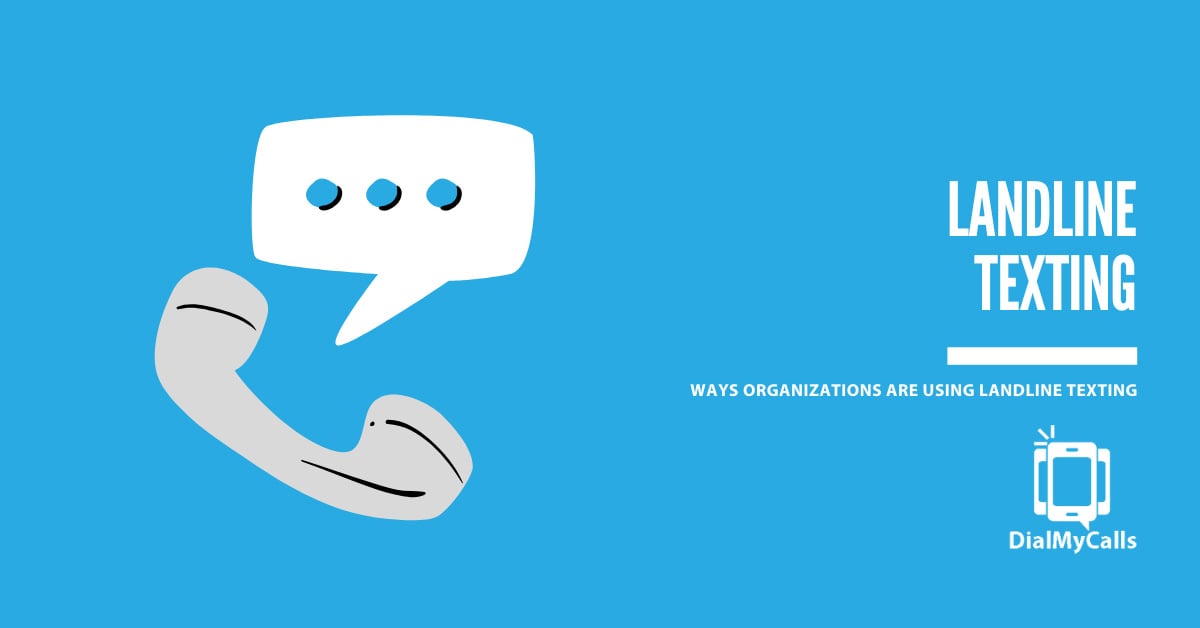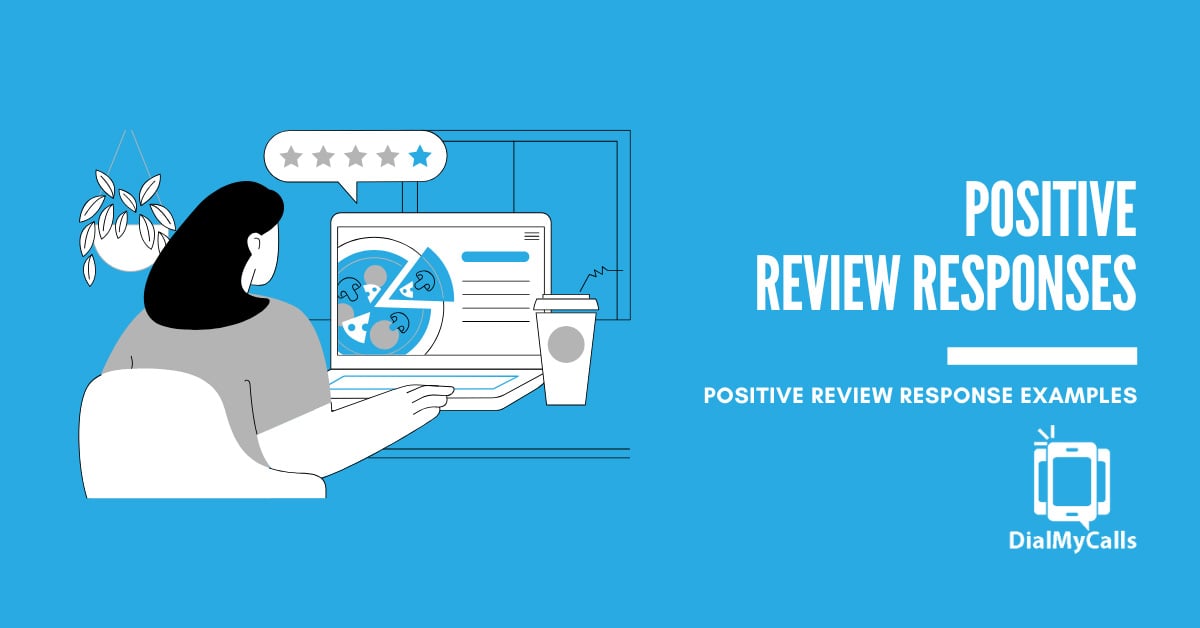Text Message Scams and Your Business: What Staff Should Know
Posted by Tim Smith in Business Continuity on July 22, 2025

Smishing, also known as SMS phishing, is on the rise, and your team could be the next target. These scams impersonate HR, IT, or leadership to trick employees into handing over credentials, clicking malware links, or making financial transactions. In this guide, you’ll learn how to spot red flags, train employees, and reduce risk by using secure internal SMS platforms like DialMyCalls, which helps enforce consistent employee SMS protocols.
Introduction: Why Your Business Should Be Worried About Smishing
Imagine this: A team member gets a text from “HR” saying their benefits portal needs verification. Another receives a message from the “CEO” urgently requesting gift cards. Neither message is real, and both can cost your business a lot.
Text message scams, or smishing, have surged in recent years. Between 2023 and 2025, SMS phishing attacks grew by more than 300%, targeting businesses of all sizes. These scams don’t just harm individuals; they compromise your brand reputation, leak sensitive data, and open the door to fraud and multi-factor authentication (MFA) bypass.
This article explains how smishing works, the types of attacks your employees might face, and how to protect your business through cybersecurity awareness training and secure SMS platforms like DialMyCalls, which offers permission-based messaging that can’t be easily spoofed.
Stay Connected with Mass Notifications
Create & Send a Broadcast to Thousands in Seconds
What Are Text Message Scams (Smishing)?
Smishing combines “SMS” and “phishing.” It’s a form of social engineering where attackers send deceptive text messages to trick recipients into taking harmful actions.
The goal? To steal credentials, install malware, or convince someone to send money or private information. These messages often impersonate trusted sources, such as:
- HR departments
- IT teams
- Shipping companies
- Bank alerts
- Executive leadership
Common Examples:
- “Payroll issue – confirm your direct deposit info now.”
- “We couldn’t deliver your package. Click this link to reschedule.”
- “HR: Open enrollment ends today! Log in here.”
These messages appear legitimate, but they’re highly deceptive and often part of a broader internal communication security threat.
Why Your Business Is a Prime Target
- Mobile-First Workforce
- Assumed Internal Trust
- Lack of Safeguards
- Real-World Impact
Today’s workplaces are more mobile and interconnected than ever before. Whether you’re managing in-person teams, hybrid employees, or remote staff, chances are your organization depends on texting for quick updates or emergency alerts. That reliance on SMS makes you a prime target for spoofed business messages.
Cybercriminals don’t need to hack your systems. They just need to manipulate one employee. Smishing attacks are effective because they exploit trusted employee SMS protocols and human nature.
Mobile-First Workforce
Most employees read texts faster than emails. SMS open rates exceed 90%, making it an attractive target for attackers using social engineering tactics.
Assumed Internal Trust
Messages that look like they’re from HR or IT often go unquestioned. Scammers use this to prompt fast action, such as verifying credentials or clicking malicious links.
Example: “This is Mike from HR. Your benefits access has changed. Log in here.”
Lack of Safeguards
Unlike email, SMS lacks filtering tools and authentication, making spoofed business messages easier to send.
Real-World Impact
Successful smishing attacks can result in: stolen credentials and MFA bypass, payroll or vendor payment fraud, unauthorized access to company systems, malware installation or ransomware attacks, breaches in internal communication security, and legal and compliance issues.
7 Common Types of SMS Scams That Target Staff
- Fake HR or IT Messages
- Impersonated Executives
- Delivery and Purchase Scams
- Account Lockout Warnings
- Fake Surveys or Polls
- Malware or App Downloads
- Compromised Vendor Communications
Fake HR or IT Messages
Scammers impersonate internal teams to collect login credentials or push employees to download malware. These texts often reference tax documents, password resets, or HR updates.
Impersonated Executives
Scams pretending to be from company leaders often ask employees to buy gift cards or process urgent payments. These are classic social engineering attacks that pressure junior staff into compliance.
Delivery and Purchase Scams
Fake delivery notices trick employees into clicking phishing links or paying small “rescheduling” fees that steal credit card data.
Account Lockout Warnings
These mimic alerts from tools like Microsoft or Google Workspace, pressuring employees to log in and “restore access,” opening the door to MFA bypass.
Fake Surveys or Polls
Scams promise gift cards for short surveys but lead to phishing pages that harvest personal and business data.
Malware or App Downloads
Messages may link to fake scheduling or communication apps. Once installed, the app can silently exfiltrate data or install ransomware.
Compromised Vendor Communications
Attackers pose as familiar partners or contractors to reroute payments or introduce malware, undermining internal communication security.
Keep Everyone Connected & Informed
Get the Word Out Quickly with Bulk Texting and Voice Calls
Red Flags Employees Should Watch For
Teaching your team to recognize smishing starts with spotting warning signs. Train employees to pause and assess messages that include:
- Urgency or pressure: “Act now” or “Urgent request”
- Generic greetings: “Hi Team” or “Dear Employee”
- Strange links or unfamiliar phone numbers
- Spelling errors or poor formatting
- Requests for credentials, payments, or downloads via SMS
Spotting these signs is a vital part of any cybersecurity awareness training program.
Best Practices for Training Your Team on Smishing
Protecting your business starts with preparation. Build a proactive culture with the following practices:
Run Simulated Smishing Drills
Test your team quarterly. Evaluate how many employees engage with suspicious messages and follow up with targeted training.
Promote a “Verify Before You Click” Culture
Encourage employees to double-check unfamiliar messages, especially those that involve logins or financial actions.
Set Up a Reporting Channel
Create a dedicated line (email, Slack, or hotline) where staff can report suspected smishing or spoofed business messages.
Incorporate Security into Staff Meetings
Share recent scam examples and educate employees on how to handle similar scenarios.
Use Visual Aids
Reinforce awareness with digital posters, screen reminders, and training videos as part of ongoing cybersecurity awareness training.
Use Trusted SMS Platforms for Internal Communication
Peer-to-peer texting can leave your business vulnerable to impersonation and fraud. Instead, choose secure SMS platforms that offer control, traceability, and authentication, like DialMyCalls.
Why DialMyCalls Protects Your Business
When it comes to internal communication, security and reliability aren’t optional; they’re essential. DialMyCalls is designed to meet the messaging needs of modern businesses while reducing the risk of spoofed messages, unauthorized access, and communication breakdowns.
Unlike peer-to-peer texting, which can expose your organization to fraud and confusion, DialMyCalls uses secure, permission-based messaging to ensure that only verified users can send and receive internal messages. This helps eliminate impersonation risks and gives your team peace of mind that every message they receive is legitimate.
For added accountability, DialMyCalls includes full message auditing, allowing administrators to review logs and message history at any time. Whether you’re investigating a potential scam or simply tracking internal communication trends, having an auditable record ensures transparency and compliance.
Another key feature is sender validation. With DialMyCalls, employees never have to guess whether a message is authentic. Each communication comes from a clearly identified, trusted source. This eliminates confusion and builds trust in your messaging system.
Equally important is the platform’s ability to centralize communication. Instead of relying on a patchwork of personal phone numbers, scattered messages, and inconsistent tools, your organization can manage all internal texts from a single, secure system. This not only improves clarity but also strengthens your overall internal communication security.
Real-World Use Cases
DialMyCalls is built for more than just one-way alerts. Businesses use it daily for a range of essential functions.
- HR teams rely on it for announcing policy changes, reminding staff about benefits enrollment, or sharing wellness updates.
- Operations managers use it to send real-time shift changes, PTO confirmations, or staffing alerts to on-site and remote employees.
- Emergency response teams turn to it during critical moments, like office closures, severe weather events, or safety threats, ensuring that everyone gets the same information quickly.
- For daily collaboration, team leads and department heads use 2-way SMS to maintain direct, secure communication with staff.
By standardizing your employee SMS protocol with a platform like DialMyCalls, you reduce the risk of scams, improve message clarity, and establish a reliable channel your team can count on in every situation.
Conclusion: Keep Your Team Informed and Protected
Smishing isn’t a future threat: it’s happening now, and businesses of all sizes are at risk. But with the right training, technology, and awareness, you can drastically reduce your exposure.
Build a culture of security through ongoing cybersecurity awareness training and clearly defined employee SMS protocols. Educate your staff to recognize suspicious messages, respond cautiously, and report potential threats immediately. Most importantly, shift away from unverified peer-to-peer texting and adopt secure SMS platforms like DialMyCalls to ensure every internal message is trusted and traceable.
A proactive approach doesn’t just protect your data. It builds employee confidence and strengthens your overall internal communication security.
Want to protect your staff with secure, auditable text messaging? Try DialMyCalls free today.
FAQs
What Is Smishing and How Does It Affect Businesses?
Smishing, short for SMS phishing, is a type of scam where attackers send fraudulent text messages to trick recipients into sharing sensitive information, downloading malware, or sending money. For businesses, smishing can lead to credential theft, financial fraud, data breaches, and loss of employee trust. Because staff often assume internal texts are legitimate, these attacks can bypass traditional security defenses and cause significant damage.
How Can I Train Employees to Spot SMS Scams?
Start with regular security awareness training that focuses on smishing tactics. Include examples of real scams, teach staff to recognize red flags like urgent language, suspicious links, or unusual requests, and establish clear reporting procedures. Run simulated smishing tests quarterly and use team meetings to share updates or emerging threats. Encourage a “verify before you respond” mindset across all departments.
What’s the Safest Way to Send Internal Texts?
The safest approach is to use a secure, permission-based platform like DialMyCalls that ensures message authenticity and auditability. Unlike peer-to-peer texting, business-grade SMS services reduce spoofing risks, allow centralized control, and provide clear sender identity. This helps staff distinguish legitimate updates from potential scams and ensures compliance with data security protocols.
Can Businesses Be Impersonated in Text Scams?
Yes. In fact, impersonation is one of the most common techniques used in smishing. Scammers often pretend to be HR, IT, company executives, or even third-party vendors to gain trust and manipulate employees. Without a secure messaging system in place, it’s easy for attackers to spoof names or phone numbers. That’s why clear communication protocols and verified platforms are essential for preventing fraud.
Instant Communication, Whenever You Need It
Send Real-Time SMS & Voice Call Alerts from Anywhere
Author
Tim Smith is the Media Manager at DialMyCalls, where he has leveraged his expertise in telecommunications, SaaS, SEO optimization, technical writing, and mass communication systems since 2011. Tim is a seasoned professional with over 12 years at DialMyCalls and 15+ years of online writing experience.
Try Using DialMyCalls Right Now
Start For Free
Recent Posts
- Drones, IoT Sensors, and Smart City Tech in Emergency Response
- How Modern Emergency Reporting Tools Improve Response Time
- Why Uptime Matters: Ensuring Redundancy and Failover in Emergency Communication Systems
- 9 Smart Ways Local Governments Use Mass Texting for Public Safety & Crowd Control
- How to Send Emergency Alerts During Network Outages or Low Connectivity
Categories
“I am a youth minister and have spent hours in the past calling students individually to remind them of an upcoming event or to get out an urgent announcement. With DialMyCalls.com, I cut that time down to about 1 minute. I also love how I can see exactly who answered live and how long they listened so I know if they heard the whole message. DialMyCalls.com is the best website I have stumbled upon all year! Thanks!”
Central Baptist Church
Try Using DialMyCalls Right Now
Start For Free
Author
Tim Smith is the Media Manager at DialMyCalls, where he has leveraged his expertise in telecommunications, SaaS, SEO optimization, technical writing, and mass communication systems since 2011. Tim is a seasoned professional with over 12 years at DialMyCalls and 15+ years of online writing experience.
Try Using DialMyCalls Right Now
Start For Free
Recent Posts
- Drones, IoT Sensors, and Smart City Tech in Emergency Response
- How Modern Emergency Reporting Tools Improve Response Time
- Why Uptime Matters: Ensuring Redundancy and Failover in Emergency Communication Systems
- 9 Smart Ways Local Governments Use Mass Texting for Public Safety & Crowd Control
- How to Send Emergency Alerts During Network Outages or Low Connectivity
Categories
“I am a youth minister and have spent hours in the past calling students individually to remind them of an upcoming event or to get out an urgent announcement. With DialMyCalls.com, I cut that time down to about 1 minute. I also love how I can see exactly who answered live and how long they listened so I know if they heard the whole message. DialMyCalls.com is the best website I have stumbled upon all year! Thanks!”
Central Baptist Church
Try Using DialMyCalls Right Now
Start For Free





